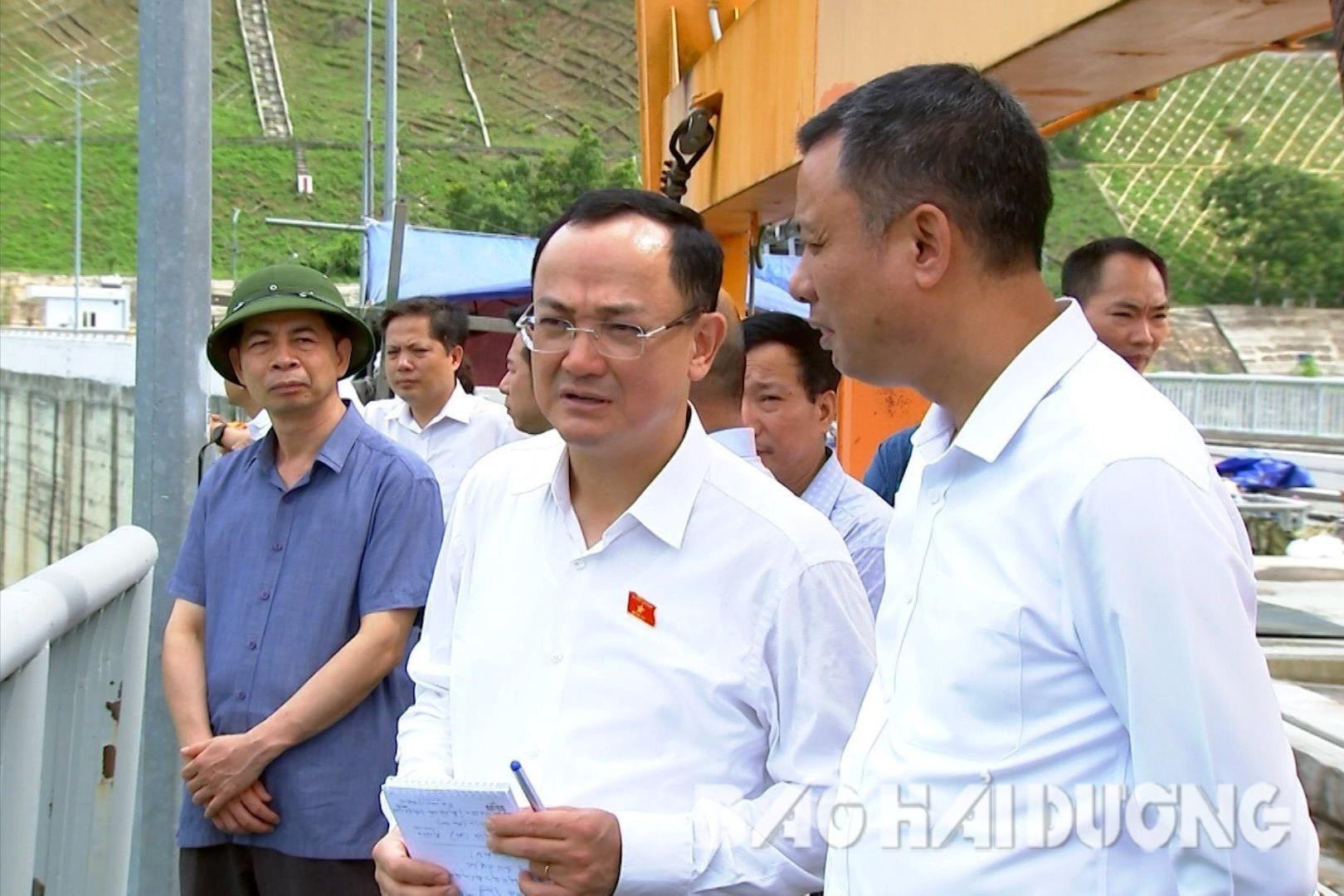If there were a database of monitoring activities of state agencies, monitoring would be more effective and avoid overlap.

On the sidelines of the 6th Session of the 15th National Assembly, Deputy Nguyen Ngoc Son, Standing Member of the National Assembly's Committee on Science, Technology and Environment, and National Assembly Deputy of Hai Duong Province, proposed to soon build a database on monitoring activities to avoid overlap. The delegate emphasized the need to connect the database on monitoring activities between agencies because in some provinces and cities, this activity of the People's Council and the National Assembly Delegation has not been as expected and there are still overlaps.
In practice in Hai Duong, there were times when I heard some district and commune leaders complain that they had to receive too many inspection, examination, supervision and survey delegations, some of which had similar contents, so sometimes they had to try very hard to ensure time and handle local work well. Sometimes when the supervision delegation returned, each leader took turns receiving one delegation. Some comrades in charge of the supervised field were busy with other work, so the person attending instead did not have a good grasp of the situation to answer and explain the issues the supervision delegation was concerned about. This led to "bland" working sessions and significantly affected the quality and effectiveness of supervision.
It is thought that if there is a database of monitoring activities of state agencies with this function, the monitoring will be optimized, effective and avoid overlap and overload for the agency. The monitoring database will help agencies look up information about each other's monitoring plans, time, and content so that appropriate arrangements can be made. On the other hand, the monitoring results (except for confidential content) will be useful data for agencies and levels to look up when necessary to serve professional work or to avoid conducting another overlapping monitoring.
For example, when the provincial People's Council committees plan to implement a thematic monitoring plan but see that this content has not been monitored by the district level for a long time, they can study the monitoring results of the district level and learn more about necessary issues. During the thematic monitoring of the collection and treatment of domestic solid waste in Hai Duong, the Standing Committee of the Provincial People's Council also assigned the Standing Committee of the District People's Council to preside over the monitoring of 8 districts and cities and report. For the remaining 4 districts and 2 waste treatment enterprises, the Standing Committee of the Provincial People's Council directly supervised. Thanks to the participation of the Standing Committees of the District People's Councils, the Standing Committee of the Provincial People's Council quickly obtained the results of the thematic monitoring of the collection and treatment of solid waste in the entire Hai Duong province.
In addition, monitoring activities have a very wide scope and content, so a database is needed to facilitate monitoring, evaluation and re-monitoring. Currently, many agencies have the functions, powers and tasks to conduct inspections, checks, supervision and surveys. The latter monitoring agency can also study the results of the previous monitoring period of another agency to compare the changes. This database, if put into use, will also be a basis for evaluating the effectiveness of monitoring activities at all levels and sectors.
This database can even be expanded for all people to access to monitor and supervise the implementation of the conclusions after monitoring. Thereby, the effectiveness and efficiency of monitoring will be strengthened and improved when there is unity, coordination and transparency between agencies and between agencies and voters and people.
HAI AN